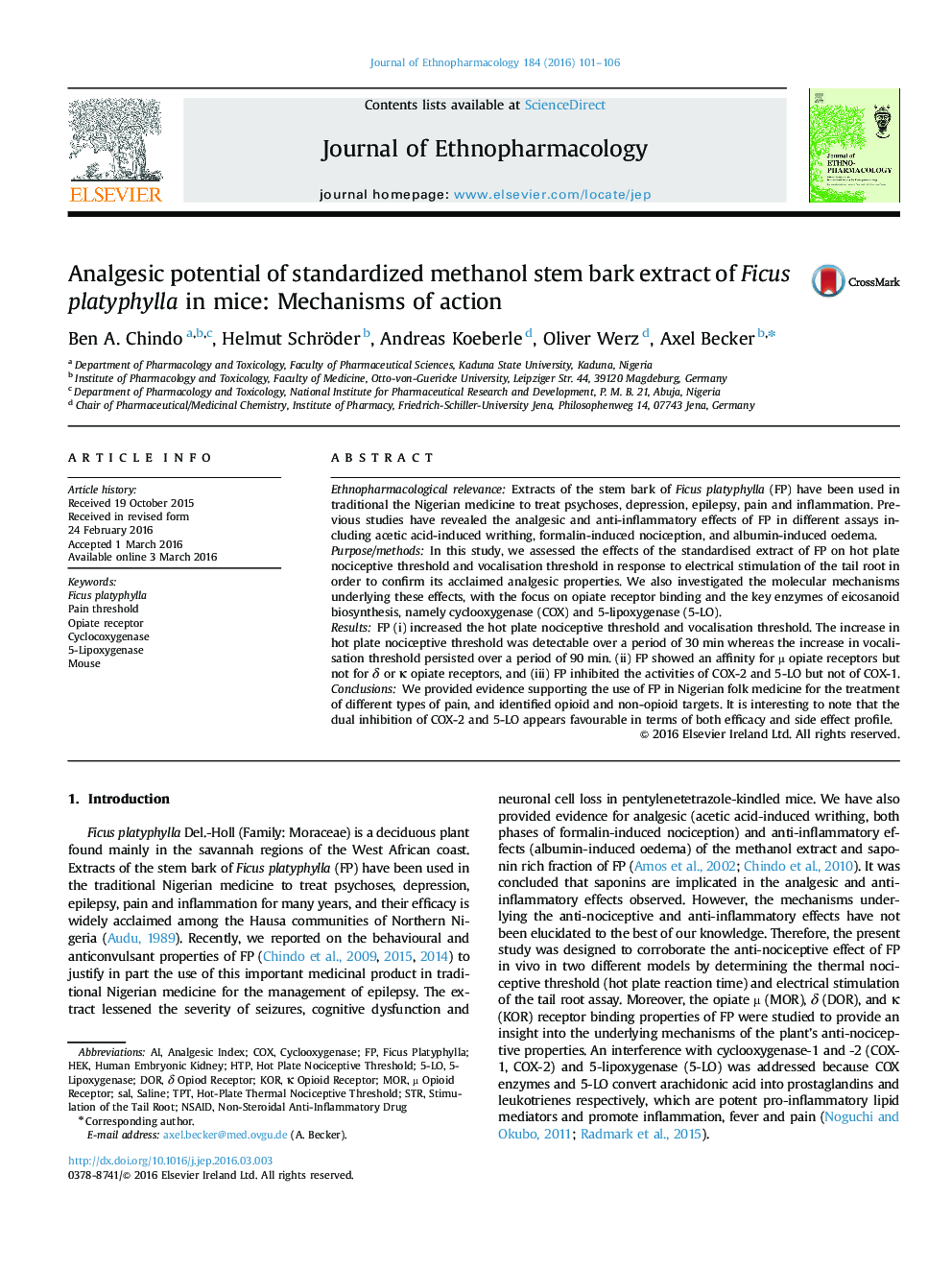| Article ID | Journal | Published Year | Pages | File Type |
|---|---|---|---|---|
| 2544780 | Journal of Ethnopharmacology | 2016 | 6 Pages |
Ethnopharmacological relevanceExtracts of the stem bark of Ficus platyphylla (FP) have been used in traditional the Nigerian medicine to treat psychoses, depression, epilepsy, pain and inflammation. Previous studies have revealed the analgesic and anti-inflammatory effects of FP in different assays including acetic acid-induced writhing, formalin-induced nociception, and albumin-induced oedema.Purpose/methodsIn this study, we assessed the effects of the standardised extract of FP on hot plate nociceptive threshold and vocalisation threshold in response to electrical stimulation of the tail root in order to confirm its acclaimed analgesic properties. We also investigated the molecular mechanisms underlying these effects, with the focus on opiate receptor binding and the key enzymes of eicosanoid biosynthesis, namely cyclooxygenase (COX) and 5-lipoxygenase (5-LO).ResultsFP (i) increased the hot plate nociceptive threshold and vocalisation threshold. The increase in hot plate nociceptive threshold was detectable over a period of 30 min whereas the increase in vocalisation threshold persisted over a period of 90 min. (ii) FP showed an affinity for µ opiate receptors but not for δ or κ opiate receptors, and (iii) FP inhibited the activities of COX-2 and 5-LO but not of COX-1.ConclusionsWe provided evidence supporting the use of FP in Nigerian folk medicine for the treatment of different types of pain, and identified opioid and non-opioid targets. It is interesting to note that the dual inhibition of COX-2 and 5-LO appears favourable in terms of both efficacy and side effect profile.
Graphical abstractFigure optionsDownload full-size imageDownload high-quality image (157 K)Download as PowerPoint slide
